Annie Gray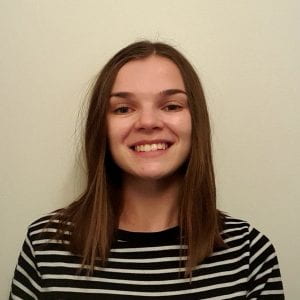
I graduated in 2020 from the University of Bristol with a First-Class Honours degree in Mathematics (MSci) with a year studying abroad at the National University of Singapore. Throughout my degree I have studied both pure and applied mathematics, however, whilst in Singapore I focused on statistics. My final year project involved studying the hydrodynamics of swimming bacteria where I simulated the dynamics of systems close to thermodynamic equilibrium in LAMMPs and applied this model to immune cells.
I am currently working on a project supervised by Dr Patrick Rubin-Delanchy and Professor Nick Whiteley entitled ‘Exploratory data analysis of graph embeddings: exploiting manifold structure’, where I hope to discover more about the geometric features of spectral embeddings of graphs.
Anthony Stephenson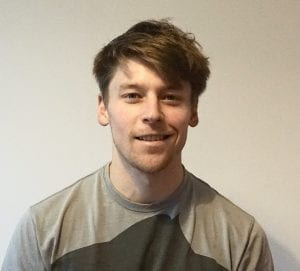
I graduated from the University of Cambridge back in 2014 with a Master’s degree in Natural Sciences, specializing in theoretical physics. Since then, I have worked in London for over 5 and a half years as a Data Scientist, building predictive models for football match outcomes. I have broad research interests, but I am currently focussed on developing large scale non-linear Bayesian inference methods, by, for example, improving scalability of Gaussian Processes, or studying uncertainty representations in Bayesian Neural Networks.
 Conor Crilly
Conor Crilly
My PhD is in the area of Uncertainty Quantification and involves the emulation of complex computer codes which constitute a ‘black-box’ approximation of a physical experiment. Ultimately, we are interested in using the computer code within some form of decision-making process. Hence, for decisions made using the output of the code to be credible, it is necessary to approximate the uncertainty associated with the code. We are primarily interested in deterministic, expensive computer codes, for example finite element simulators run over fine meshes, or climate models. Emulation allows us to use a statistical model to approximate our computer code and provide an estimate of the associated uncertainty.
Our current focus is on a particular type of emulator called a Gaussian process. Specifically, we are interested in using Gaussian processes to estimate functions for which there exists prior knowledge of shape constraints, such as monotonicity. This project is supervised by Professor Oliver Johnson.
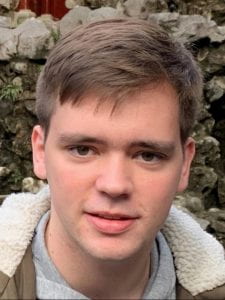 Conor Newton
Conor Newton
In the summer of 2020 I graduated from the University of Bristol with an MSci in Mathematics, where I focused mostly on pure mathematics. I spent a large amount of my time writing software and involving myself in programming projects. In particular, I took part in a summer research project where I studied and implemented automated timetabling algorithms on the University of Bristol’s data set.
I joined the COMPASS CDT in September 2020 and I’m currently working on a project with Dr. Henry Reeve and Dr. Ayalvadi Ganesh titled Decentralised sequential decision making and learning. This project considers a variant of the classic multi-armed bandit problem where multiple agents work collaboratively on a MAB problem.
Dan Ward
I graduated in the summer of 2020 from the University of Bristol with a First Class Honours in Biology (MSci). I am interested in simulation-based inference methods, and in particular how these can be used to calibrate agent-based models, which generally have intractable likelihoods. My other interests include machine learning, demographic modelling and crop genetics.
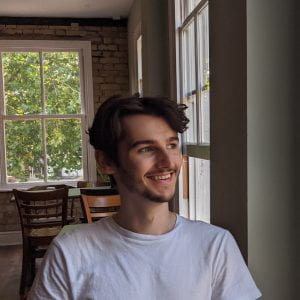 Ed Davis
Ed Davis
Prior to COMPASS, I graduated from the University of Manchester with a master’s degree in Physics with first-class honours. During this degree, I undertook a summer placement with the university where I analysed data collected by the ATLAS detector at the Large Hadron Collider, CERN. For my master’s project, I began working towards the creation of an autonomous DJ system, which involved creating music information retrieval (MIR) algorithms to detect musical cue points, tonality, tempo and downbeats. My PhD work has so far focussed on comparing multi-graph spectral embedding methods in an attempt to create a dynamic graph embedding paradigm.
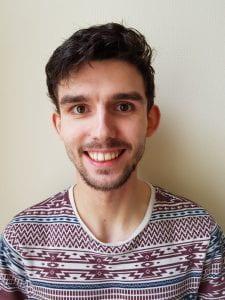 Euan Enticott
Euan Enticott
I graduated from the University of St Andrews in 2020 with an MMath in mathematics and statistics. Here I focused on data science and statistics whilst undertaking a project in statistical ecology, modelling the behaviour of snow leopards with the use of spatial data. I have a keen interest in programming, particularly with R and Python and look to use these within the field of Spatial Statistics or Bayesian Modelling. I have joined the COMPASS programme looking to enhance these skills so that I am able to use data driven solutions to tackle some of the real world problems facing us today.
Georgie Mansell
In 2020, I joined the Compass CDT and I am currently working on a project with Prof Andrew Dowsey, Dr Colin Campbell, and Dr Haeran Cho. The project is entitled ‘Statistical learning of quantitative data at scale to redefine biomarker discovery’, where the aim is to develop a deep learning topic model which can predict and quantify entities in proteomic mass spectrometry data.
 Jack Simons
Jack Simons
I graduated in 2019 from the University of Bristol with a First-Class Honours degree (MSci) in Mathematics. After graduating I moved to Colombia where I co-founded a Web Development business. I have just started my first year at Bristol’s Computational Statistics and Data Science CDT, Compass. My previous research has been in Population Genetics, where I have applied Stochastic Analysis with Monte Carlo Methods. However, beyond these areas , I am generally interested in solving real-world problems with computational statistics.
I have recently began a project, supervised by Song Liu and Mark Beaumont, entitled ‘Approximate Bayesian Inference by Density Ratio Estimation’ in which we seek to propose a novel method for likelihood inference.
Sam Stockman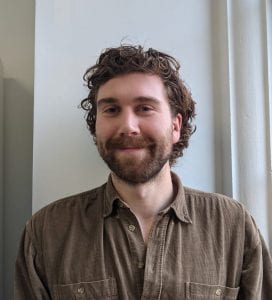
I graduated from the University of Bristol in 2019 with a First-Class Honours degree (MSci) in Mathematics with a year studying abroad at the University of Washington (Seattle), where I found my interest in Computational Statistics. Now part of the COMPASS CDT, I am eager to pursue my interest in applying statistical tools to problems that directly benefit both society and the planet. My current interest is in the application of Machine Learning to the field of Seismology. Particularly, looking at how Deep Learning can improve short term earthquake forecasting.
Shannon Williams
In 2020 I graduated from the University of Warwick where I studied an integrated Masters in Mathematics, Operational Research, Statistics and Economics (MORSE) and received First-Class Honours. My Masters dissertation involved using statistical learning methods for carrying out topic modelling on the CRAN database of R packages. I am interested in the application of computational statistics and data science to real-world problems, in particular the applications of spatial statistics and multi-level modelling to areas such as geography and climate science. I also have an interest in software development and particularly the development of R packages.
I am currently undertaking a project supervised by Professor Anthony Lee and Professor Jeremy Phillips, in collaboration with the School of Earth Sciences. The project, entitled ‘Use and Comparison of Stochastic Simulations and Weather Patterns in probabilistic volcanic ash hazard assessments’, aims to compare and characterise the differences between probabilistic forecasts of volcanic ash dispersion from Icelandic volcanic eruptions.

